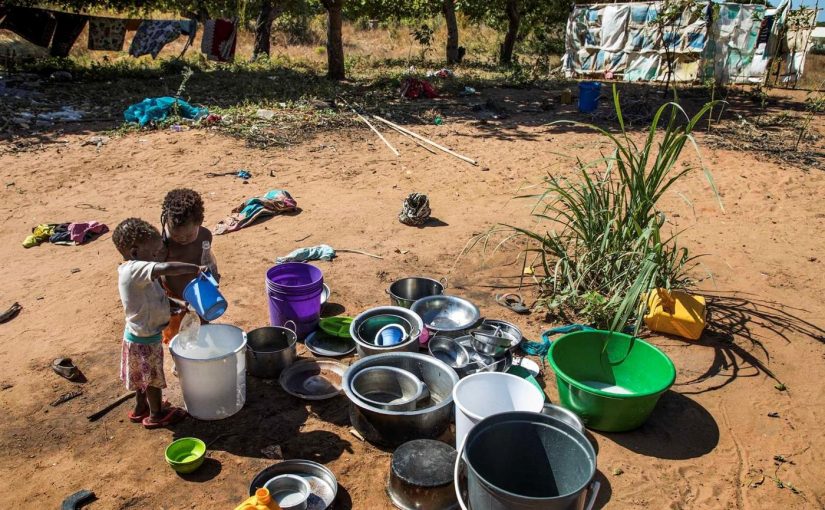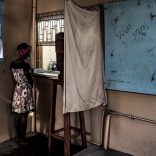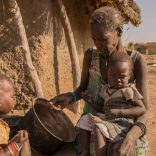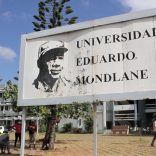Substance abuse assistance in Maputo City surges 46% in first half of 2025
Cabo Delgado: Displaced children as young as 11 years old are being forcibly married – NGO

File photo: Lusa
Displaced children from the Cabo Delgado conflict are being forcibly married to older men (40 to 50 years old) so that they and their families can survive, warns the NGO Care.
“Girls get married between 12 and 17 years old, but in some cases they even get married before that, at the age of 11. Sometimes their parents offer them in marriage because they need resources and have one less mouth to feed”, describes Graça Gonçalves, Care’s gender agent.
At other times, “girls are separated from their parents while fleeing the places of conflict, becoming the new heads of households and need to provide food for their younger siblings”, she adds in a statement from the NGO.
The situation is not new – Mozambique was already one of the countries with the highest rate of early marriage in the world – but it is getting worse with conflict.
“Child marriage is a big problem because people run away with nothing and the displaced persons’ camps are under-resourced and overcrowded”, Graça Gonçalves underlines.
The lack of sanitary facilities, bathing places, the absence of separate spaces for women and girls or the simple fact that they are more distant “leaves women and girls vulnerable to attack, especially at night”, she describes.
One of Care’s activities is to show women and girls how to report abuse and how to defend themselves.
A week ago, the United Nations High Commissioner for Refugees (UNHCR) reported that the war in Cabo Delgado is causing an increase in early pregnancies due to child sexual abuse.
The alerts come in addition to another one launched a month ago by the Centre for Public Integrity (CIP), a Mozambican NGO, on sexual abuse against displaced women, in exchange for humanitarian aid, considering there is silence from the Government and the United Nations on the matter.
The armed violence in Cabo Delgado, northern Mozambique, is causing a humanitarian crisis with around 2,000 deaths and 500,000 displaced people, without housing or food, mainly concentrated in the provincial capital, Pemba.
The province where the largest private investment in Africa is being made for the exploitation of natural gas has been under attack by insurgents for three years and some of the incursions have been claimed by the ‘jihadist’ Islamic state group since 2019.













Leave a Reply
Be the First to Comment!
You must be logged in to post a comment.
You must be logged in to post a comment.